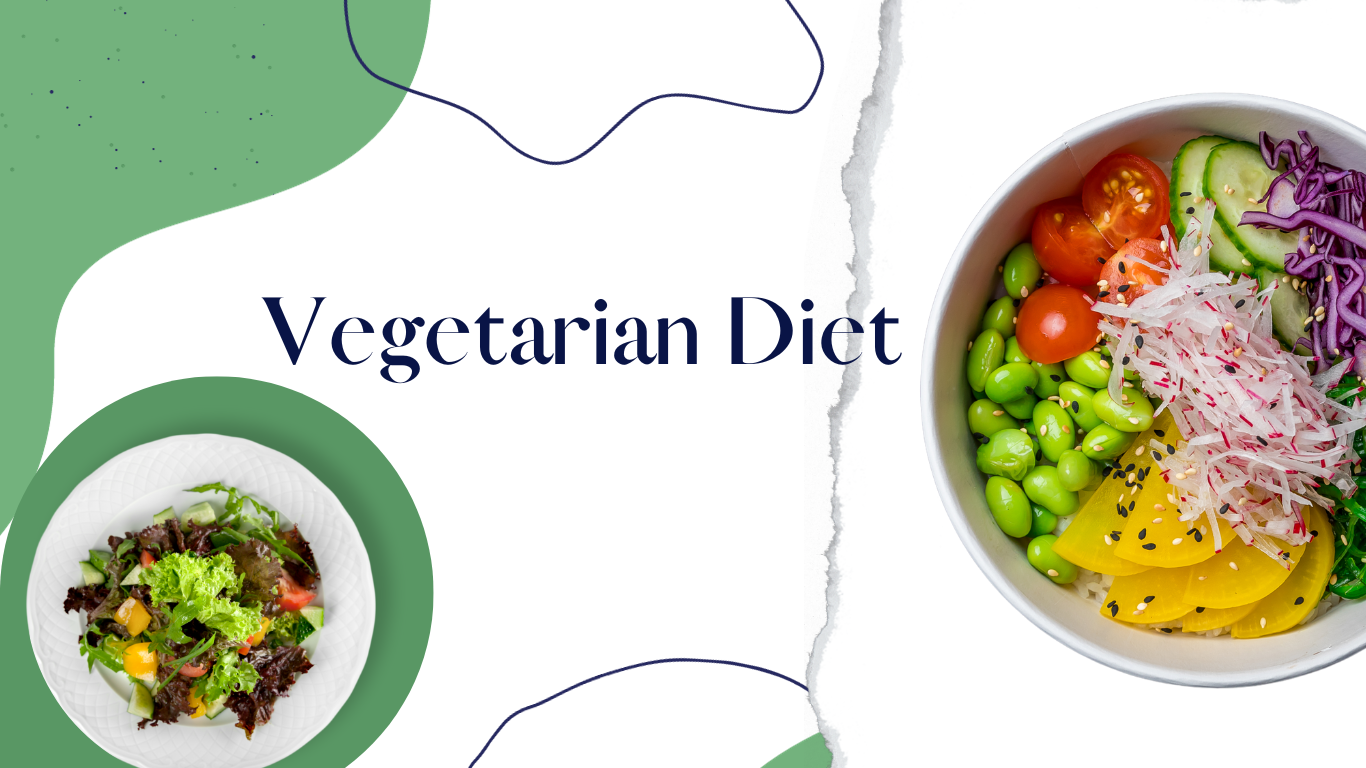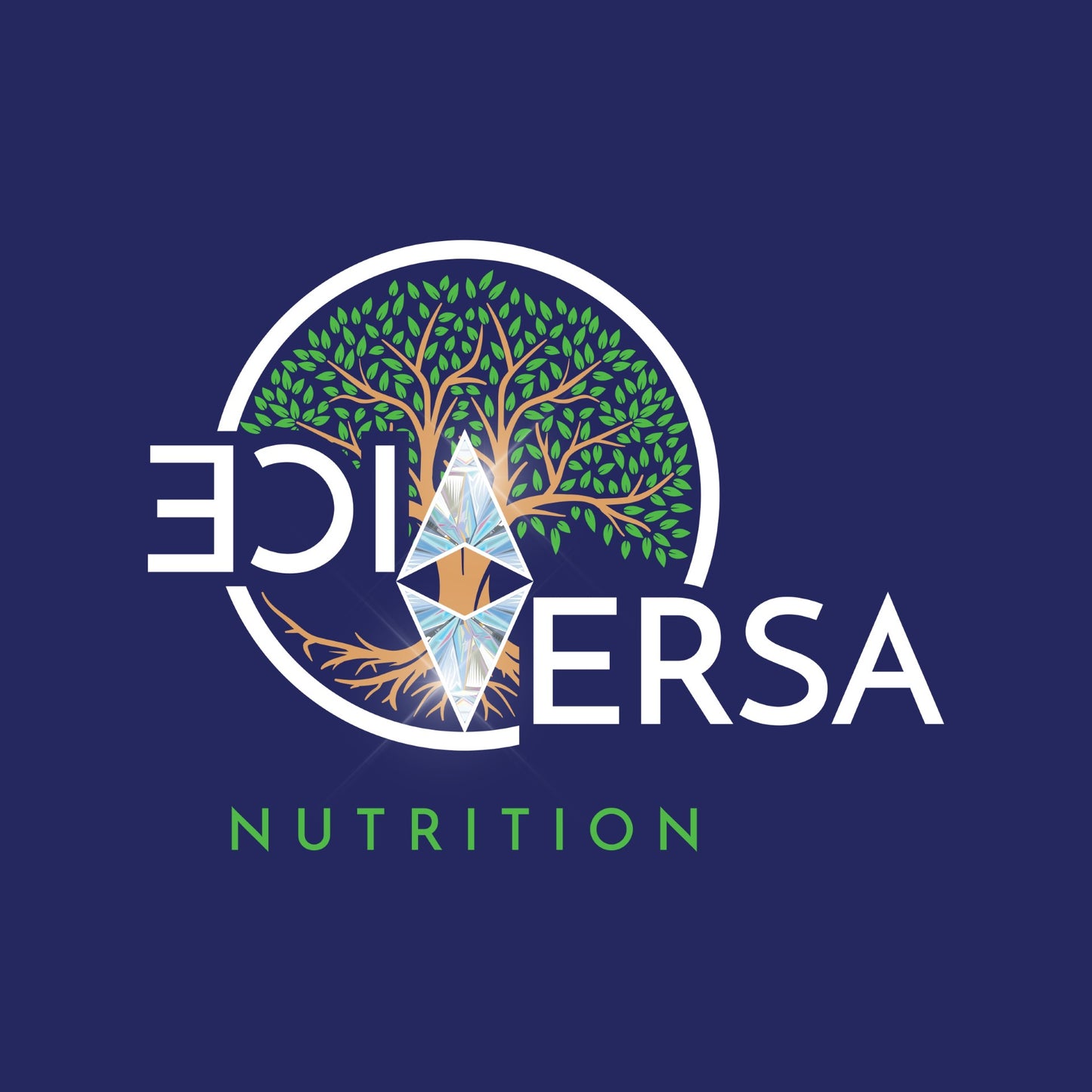
More and more people are opting for a plant-based lifestyle for various reasons, including health benefits. But is a vegetarian diet really the key to optimal health? In this blog post, we'll discuss the pros and cons of a vegetarian diet and help you determine if it's the right choice for your health goals. So, let's weigh in on the health benefits of a vegetarian diet and see if it's the right fit for you.
What is a vegetarian diet?
A vegetarian diet is a way of eating that excludes the consumption of meat, poultry, and seafood. Instead, it focuses on plant-based foods such as fruits, vegetables, legumes, grains, nuts, and seeds. There are different types of vegetarian diets, including lacto-vegetarian (includes dairy products), ovo-vegetarian (includes eggs), lacto-ovo-vegetarian (includes dairy products and eggs), and vegan (excludes all animal products).
Is It Right for You? Determining If A Vegetarian Lifestyle Fits Your Needs
Deciding to switch to a vegetarian lifestyle is a personal choice that should align with your individual needs and health goals. So, how do you determine if a vegetarian diet is right for you?
Firstly, consider your reasons for wanting to adopt a vegetarian lifestyle. Are you motivated by health concerns, environmental sustainability, or animal welfare? Understanding your motivations can help you evaluate whether a vegetarian diet aligns with your values and priorities.
Next, assess your dietary preferences and habits. Are you someone who enjoys a variety of fruits, vegetables, grains, and pulses? If you already enjoy plant-based foods and find satisfaction in meat-free meals, transitioning to a vegetarian diet may be a smoother process for you. On the other hand, if you are a devoted meat lover who struggles to envision a meal without animal products, a vegetarian diet may require a significant adjustment.
It's also important to consider your unique nutritional needs. Certain individuals, such as athletes or those with high energy requirements, may find it challenging to meet their nutrient needs solely through plant-based sources. Pregnant or breastfeeding women, as well as individuals with specific medical conditions, should consult with healthcare professionals or registered dietitians to ensure they receive all the necessary nutrients for optimal health.
The Power of Plants: Unpacking the Benefits of a Vegetarian Diet
The power of plants is undeniable when it comes to the benefits of a vegetarian diet. Scientific studies have shown time and time again that adopting a plant-based lifestyle can have a positive impact on our physiology and overall health.
One of the key benefits of a vegetarian diet is its potential for disease prevention. Research has indicated that individuals who follow a vegetarian diet have a lower risk of developing heart disease, high blood pressure, obesity, and certain types of cancer. This is due in part to the high levels of fibre, vitamins, minerals, and antioxidants found in plant-based foods. These nutrients work together to support our immune system, reduce inflammation, and promote overall wellbeing.
Furthermore, recent studies have also found that a vegetarian diet may have a positive effect on our gut health. The high fibre content of plant-based foods helps to promote a healthy gut microbiome, which is crucial for proper digestion and nutrient absorption. A healthy gut microbiome has been linked to a reduced risk of various diseases, including autoimmune disorders and certain mental health conditions.
My Personal experience with a vegetarian diet
I went on a vegetarian diet for 3 months to study my body after watching a documentary on Netflix and wanted to put the theory to the test on myself.
Documentary breakdown
I evaluated a documentary from the 'Game Changers’ (2019) to which this documentary expresses its value through scientific research and how the importance of plant based foods can help performance and recovery.
A plant based diet is slowly becoming more acknowledged due to athletes and other professional performers with their record breaking. Here are a few examples: (Strongman) Patrik Baboumian, Nate Diaz (UFC), Serena and Venus Williams (Tennis champions).
Vegetarian diet to most people is seen as a new fad that people are trying. In fact if we look back to over a thousand years ago we can look into gladiators and the studies show that they consumed mostly plants. Dr. Fabian Kanz, forensics pathologist, medical university of Vienna analysed 68 gladiators’ bones. The gladiators’ bones had high strontium levels which indicated that their diet was mostly plant based. Gladiators were and still are deemed as strong performers, which defeats the myth of “meat makes you stronger”.
Additionally we can look at Dr. Robert Vogel and his research in the direct correlation between meals and endothelium function. Dr Vogel says that “Endothelium regulates blood flow throughout the body”; it knows that a particular muscle or organ needs more blood flow and dilates. He tested 3 NFL players' blood after eating a plant based meal compared to a meal made from meat. The blood was put into a centrifuge two hours directly after their meals, Dr. Vogel examined the two blood samples, with the results showing that the meal containing meat has cloudy plasma indicating that there is fat and cholesterol particles, in comparison to the plant based diet the plasma was see-through which indicates that the endothelium will function optimally thus improving performance due to the circulation of blood/oxygen flow passing through the body where required.
Experiment
In the 3 months i was strict on my diet but also cautious of the potential nutrient deficiencies that can occur (revealed in the next section of this blog post) As a fitness fanatic i wanted to see the development in my cardiovascular endurance. I had partaken in high intensity cardio for 20 minutes using the cross-trainer. The cross-trainer is great at its very low impact on joints and allows you to achieve a higher performance level with minimal aches and paint after. Every day i monitored my heart rate through my smart watch, i juxtaposed between how my heart rate reacted to the intensity level selected on the cross-trainer at certain times (every 5 minutes) and also at the end of the 20 minutes i timed the result of how long it would take me to reduce to my resting heart rate.
By the end of the three months i had improved significantly. My heart rate at high intensity mid session (10 minutes) from 190bpm's - 173 bpm's. My resting heart rate (54) from 40 minutes to 15 minutes with my resting heart rate changing at the end of the 3 months to 45bpm's.
I have included the above section for preference to performance enhancement but this doesn't mean you have to go to the extremes i went to. Most of the results will not only be visible but internal as you will feel more vibrant due to blood cells working optimally.
What are the risks and how to avoid them
While there are many pros to a vegetarian diet, it's important to be aware of the potential risks that can arise from eliminating meat and other animal products from your diet. One of the main concerns is the possibility of nutrient deficiencies. Certain nutrients, such as vitamin B12, iron, and omega-3 fatty acids, are predominantly found in animal products. Without careful planning, vegetarians may be at risk of not obtaining enough of these essential nutrients.
Vitamin B12 is crucial for nerve function and the production of red blood cells. It is primarily found in animal sources, so vegetarians, especially strict vegans, may need to supplement their diet to meet their B12 needs. Iron is important for oxygen transport in the body and is found in higher amounts in animal products than in plant-based sources. While there are plant-based sources of iron, they are not as easily absorbed by the body. Vegetarians may need to consume iron-rich foods with vitamin C, which enhances iron absorption.
Another concern is omega-3 fatty acids, which play a role in brain health and heart function. While some plant-based sources, such as flaxseeds and walnuts, contain omega-3s, they are in the form of ALA and may not be as beneficial as the EPA and DHA forms found in fish. Vegetarians can consider including algae-based omega-3 supplements to ensure an adequate intake.
It's important to note that these potential risks can be mitigated with careful meal planning and monitoring nutrient intake. Incorporating a wide variety of plant-based foods, such as fortified cereals and nutritional yeast, can help address nutrient deficiencies. Additionally, consulting with a healthcare professional or registered dietitian can provide personalised guidance to ensure you're meeting your specific dietary needs and minimising potential risks.
Taste the Rainbow: Sample One Week Vegetarian Meal Plan
Looking to add some excitement to your vegetarian journey? We've got you covered with a sample one-week vegetarian meal plan that will be delicious and nutritious.
Day 1: Start your week off right with a hearty breakfast of avocado toast topped with sliced tomatoes and a sprinkle of feta cheese. For lunch, enjoy a colourful Greek salad packed with fresh veggies, olives, and crumbled feta. For dinner, indulge in a flavourful vegetable stir-fry served with quinoa.
Day 2: Kick off your day with a nutritious smoothie made with spinach, banana, and almond milk. Lunch can be a vibrant veggie wrap filled with roasted vegetables and hummus. For dinner, try a comforting bowl of lentil curry served with basmati rice.
Day 3: Energise your morning with a protein-packed tofu scramble loaded with your favourite veggies. For lunch, enjoy a refreshing watermelon and feta salad. Dinner can be a delicious bowl of chickpea and vegetable curry served with naan bread.
Day 4: Start your day with a satisfying breakfast bowl topped with Greek yoghurt, berries, and granola. For lunch, whip up a vibrant beetroot and goat cheese salad. Dinner can be a tasty mushroom and spinach risotto.
Day 5: Get your day off to a good start with a stack of fluffy blueberry pancakes served with maple syrup. For lunch, enjoy a refreshing Caprese salad made with fresh mozzarella, tomatoes, and basil. Dinner can be a filling sweet potato and black bean chilli.
Day 6: Treat yourself to a delicious breakfast of overnight oats topped with mixed berries and almond butter. For lunch, enjoy a vibrant spinach and strawberry salad. Dinner can be a mouthwatering vegetable lasagne packed with layers of veggies and cheese.
Day 7: Indulge in a leisurely Sunday breakfast with a plate of fluffy scrambled eggs served with sautéed mushrooms and roasted tomatoes. For lunch, enjoy a nourishing quinoa salad loaded with roasted vegetables and a drizzle of balsamic glaze. For dinner, end your week with a comforting bowl of butternut squash soup.
Thank you to everyone who has read these past view blog posts on diets. Taking action and starting a new diet in addition to keeping an eye on calories can be daunting for someone who has never done so before. But you have learned some new techniques to take control of your habits. I hope you try to experiment as much as you can where possible.
Thanks again, and have a great day!
